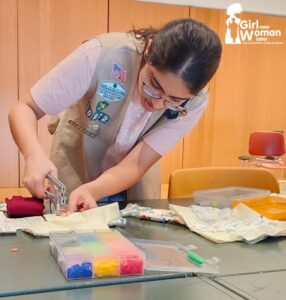On the fourth Thursday of April, we celebrated the International Day of the Girl, ICT. With our increasingly digital world, expertise in information and communication technologies has become imperative in the workplace. The UN estimates that there will be around two million job vacancies in the ICT sector over the next five years. However, although the industry is growing rapidly, its internal gender imbalance remains a concern. Today, women are still outnumbered by men, making up only 28% of the science, technology, engineering and mathematics (STEM) workforce. Gender discrimination in the workplace has also pushed many women out of STEM fields. Studies show that half of women in tech leave by the age of 35. The 2019 pandemic only exacerbated this gender imbalance. As women primarily shoulder the burden of child care and family life, 50% of women said the pandemic had slowed their career progression. We can trace this gender imbalance in the workplace back to our education system. The American Association for University Women called a “confidence deficit” in STEM subjects that started as early as CE2. Research has shown that many girls lose confidence in math in 3rd grade.

GNWL 2025 Black History Month: Champions of Change
Every February, Black History Month is celebrated. As we remind ourselves, there are countless Black genius trailblazers that we probably don’t know about, or that we take for granted what they did that shaped culture, or humanity, Nonetheless, it’s never too late to acknowledge these trailblazers and their impacts and contributions whether in February, or any other day!




